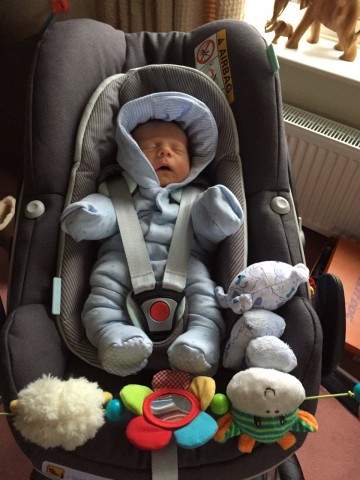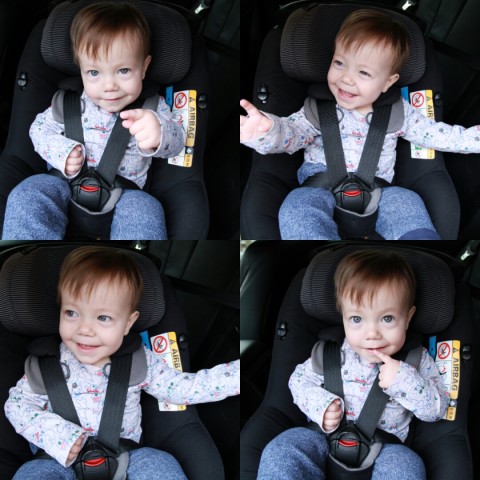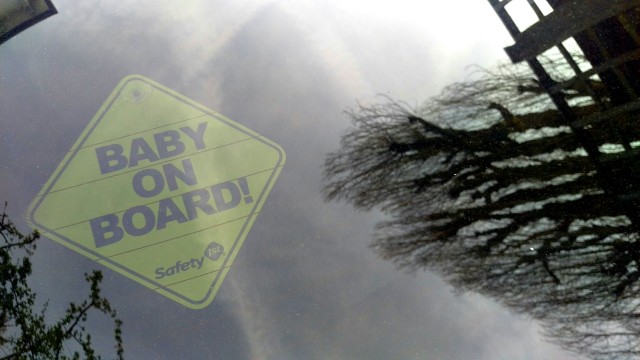As car brands become tech companies, the winners will be those who combine software with emotional intelligence and deep insight into how we behave.
The word ‘connect’ comes from nectere to bind. But over time our understanding of it has shifted – in 1881, the French word connexer was superseded by connecter, meaning "to establish a relationship" (with). But, we don’t need the dictionary to tell us that true connection is about trust, empathy and care.
So, do today’s connected cars care about us? And what can we take from this as we design the transport systems of tomorrow? Join me as I take my connected car in for its MOT, six months ago…
Dicing with death
I’d just sat down when she touched my keys on her Bluetooth reader. We weren’t even on first name terms. She knew something. It was the kind of thing that could be life or death. 'It’s your brakes' she said 'they’re going to wear out in 457 miles. Shall we change them now?' In that second I imagined my family crashing – Yes, please change them now. It was only afterwards I started to wonder. Why 457 miles specifically? What other choice did she think I had?
A few days later, with new brake-pads and a hole in my wallet, my wife was on the motorway with our baby boy when the car’s service light starts flashing. The car had forgotten it had just had the automotive equivalent of a Swedish massage – the light is red and that means danger. She fights the urge to pull onto the hard shoulder and goes to the nearest service station where she calls me in tears. Then she calls the garage who say; 'Oh, it’s probably just the tyre pressure. We need to reset the computer so it knows we’ve changed the pressure during the MOT. But we can’t be sure.' So she drives 30 miles and the mechanic presses the reset button.

Left out in the Cold
Just before Christmas, the car starts developing man flu. It starts with sluggish resentment then moves with slow defiance. Back to the garage, where they want £150 to run a diagnostic check. My wife is exhausted, our son is curled up in the sling. The machine tells them our battery is low. It appears journeys under 10 km don’t charge the car, and living in London, we’re not driving far enough to keep it topped up.
It’s Boxing Day. We’re at my in-laws in Shropshire and our now 1-year-old has been ill for the last five days. I’m loading the car in a hurry to get home to the GP (I know, a bit melodramatic but we’re first-time parents). It’s freezing, so I leave the proximity activated keys by the front seat – so I can turn the engine on to crank up the heater. The car beeps but the penny only drops once I’d closed the door to keep the cold out.
Turns out the other key was in my jacket in the boot. The car had locked itself with the engine on and nobody inside, knowing both sets of keys were in the car.

But it’s a Connected Car, you say
Remembering this was a Connected Car, we realised there must be an app to unlock it. My wife downloads it while I’m on a call to Sarah at the garage (we’re on first name terms by now).
'We need the VIN number' my wife says, whatever that is. Sarah gives us the VIN number and we log in. Just as I think this might save my marriage, the app sends a message to the car to authenticate us. We can see this appear through a small frost-free patch in the window. Thanks, irony.
Small Things Make a Big Difference
So my car isn’t that connected after all. Not to me, my family, the garage, the dealer or even itself. It drives like a dream thanks to all the wonderful technology but my recent memories don’t relate to the automatic suspension or the way the wipers come on when it rains. The big stuff is done really well, but the small stuff – the actual usability – is surprisingly bad, especially given the car’s intelligence. To borrow a phrase from Rory Sutherland, where’s the chief detail officer? Shouldn’t the experience be as intelligent as the car?
Let’s start with the battery. Why not tell me it’s running low so I can do something about it? Or, let me know when I’m buying the car. Why not help me prolong the life of the brake-pads by suggesting a less bumpy route or by helping me be a better driver? The car knew both sets of keys were inside, but locked me out. Who reads those dusty 300-page manuals in the glove box anyway? And the app could have saved the day, had it been designed with this use case in mind.
Remember, we’re human
I asked an Uber driver recently if he noticed his flashing service light and he simply said 'oh, it always does that'. The response is either denial or blind panic and neither is the desired response. So, car, why not tell me if you have a sniffle or a heart attack and how I can help you? You know where your makers are but you don’t even give me a number to call.
We’re human. That means we’re perfectly imperfect and predictably irrational. We do silly things like panic when we sense danger and leave our keys in the car. We over-react. We can’t take it all in. We have busy lives, families and get tired. But we expect you to be perfect. We’re unreasonable and think that’s fine.

We need empathy by design
The customer experience of the future needs to be able to learn and evolve. It needs to be flexible, adaptable and real-time. The way Tesla changed the rules around the use of its Supercharger network is a sign of the way forward. When they saw people were trying to use charging for free parking, they introduced an ‘idling fee’. By re-designing the experience on the fly, they made it better for everyone. As we know, not even Tesla is perfect.
In the future, they say it’ll be easier to get around and cheaper too, everything will be connected and the city will be a place of parks and peace – all choreographed by a hyper-intelligent mobility network. Catch a driverless car, hop on a drone, travel at the speed of sound underground and touch in and out with a blink of an eye. There will be a subscription for that.
It’s a seductive vision. True or not, what’s important for brands is to really understand what matters to people and to break down their silos in pursuit of a common purpose – to create a remarkable experience end-to-end. That's what we really care about. Brands have a business advantage by being human. Those thinking about their next 300-page user manual will not survive.
In the years to come, if our movement needs won’t be served by individual products, but a series of interconnected services, whose job is to care about the end to end experience? We can learn from today’s experience glitches to design a better future. And as we know, the greater the promise, the greater our expectations.
If you want to talk to us about connected cars, or anything else about the future of mobility, drop us a line to mobility@ustwo.com